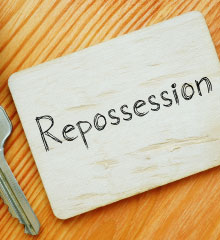What Are the Georgia Bankruptcy Exemptions?
Many people who could benefit from the debt protections offered by bankruptcy are afraid to file due to common misconceptions about the process. One of the most widespread misunderstandings is the idea that you will lose everything you own if you file for bankruptcy. The truth is, you will almost always be allowed to keep most, if not all, of your possessions! One call to DebtStoppers and we will connect you to one of our experienced bankruptcy attorneys who will answer all of your questions regarding bankruptcy and protecting your assets!
Each state has bankruptcy exemption laws. These laws outline which of your belongings are protected when you file a Chapter 7 or Chapter 13 bankruptcy. Although the exemption list is different for each state, generally, your home, car, retirement accounts and certain household items are protected and you are allowed to keep them when in a bankruptcy. If you have a question about a specific asset, call us now!
What Assets Are Exempt From Creditors in Georgia?
Georgia state law contains a long and detailed list of exemptions that specifically outline which assets are exempt, the most significant of which is the homestead. Under Georgia bankruptcy law, $21,500 of value in real estate that is used as a residence is exempt. This amount jumps to $43,000 if you are married with at least one spouse listed as an owner of the property. Additionally, up to $10,000 of your unused homestead exemption funds can be applied for other belongings.
Other Georgia bankruptcy exemptions include:
-
$5,000 of vehicles;
-
$5,000 total of personal belongings such as clothing, a cell phone, appliances, books, furniture, household goods, and musical instruments;
-
$500 of jewelry;
-
$1,500 of implements, professional books, or tools of the trade;
-
$1,200 of any property (known as the “wildcard” exemption) which can include bank accounts and cash that you have;
-
Retirement accounts and pensions that are not subject to taxes;
-
Public benefits;
-
Certain lawsuit proceeds when necessary for support; and
-
Insurance proceeds.
Exemptions When Filing for Bankruptcy
In Georgia, exemptions are the same whether you file for Chapter 7 or Chapter 13 bankruptcy. However, each chapter treats property that is not exempt differently. These assets are known as “nonexempt” property.
With Chapter 7, known as “liquidation” bankruptcy, a court-appointed trustee will sell your nonexempt assets and use the proceeds to pay back your creditors. An exemption allows you to keep the specified property instead of it being sold. It is crucial to hire an experienced attorney like the ones at DebtStoppers when filing a Chapter 7 to choose the correct exemption & fully protect your property from being liquidated.
Chapter 13, on the other hand, allows you to keep all of your property, whether exempt or nonexempt. Instead of your assets being liquidated, your debts will be reorganized into a 3-to-5 year repayment plan. Your repayment plan will require you to pay the greater of the value of your equity in nonexempt property, or your disposable income. Having an experienced bankruptcy attorney to apply the correct exemptions, could save you thousands of dollars when determining the amount that needs to be paid back in your Chapter 13 case.
What Else Do You Need To Know About It?
If you are considering filing for bankruptcy, you should know that there are waiting periods for when you can use Georgia’s exemptions if you recently moved from out of state. While you can file after living in the state for more than 180 days, you must wait at least 730 days before using its exemptions. If you haven’t lived in Georgia long enough to use its exemptions, you must apply your previous state's exemptions or the exemptions allotted under Federal Law.
It is vital that you hire an experienced bankruptcy attorney to assist you in choosing the correct exemptions! An error or omission in choosing the correct exemption, could be catastrophic to you obtaining the financial freedom that you deserve. The attorneys at DebtStoppers will give you a free case evaluation prior to filing & to ensure you are allowed to keep the property that the law allows you to!


